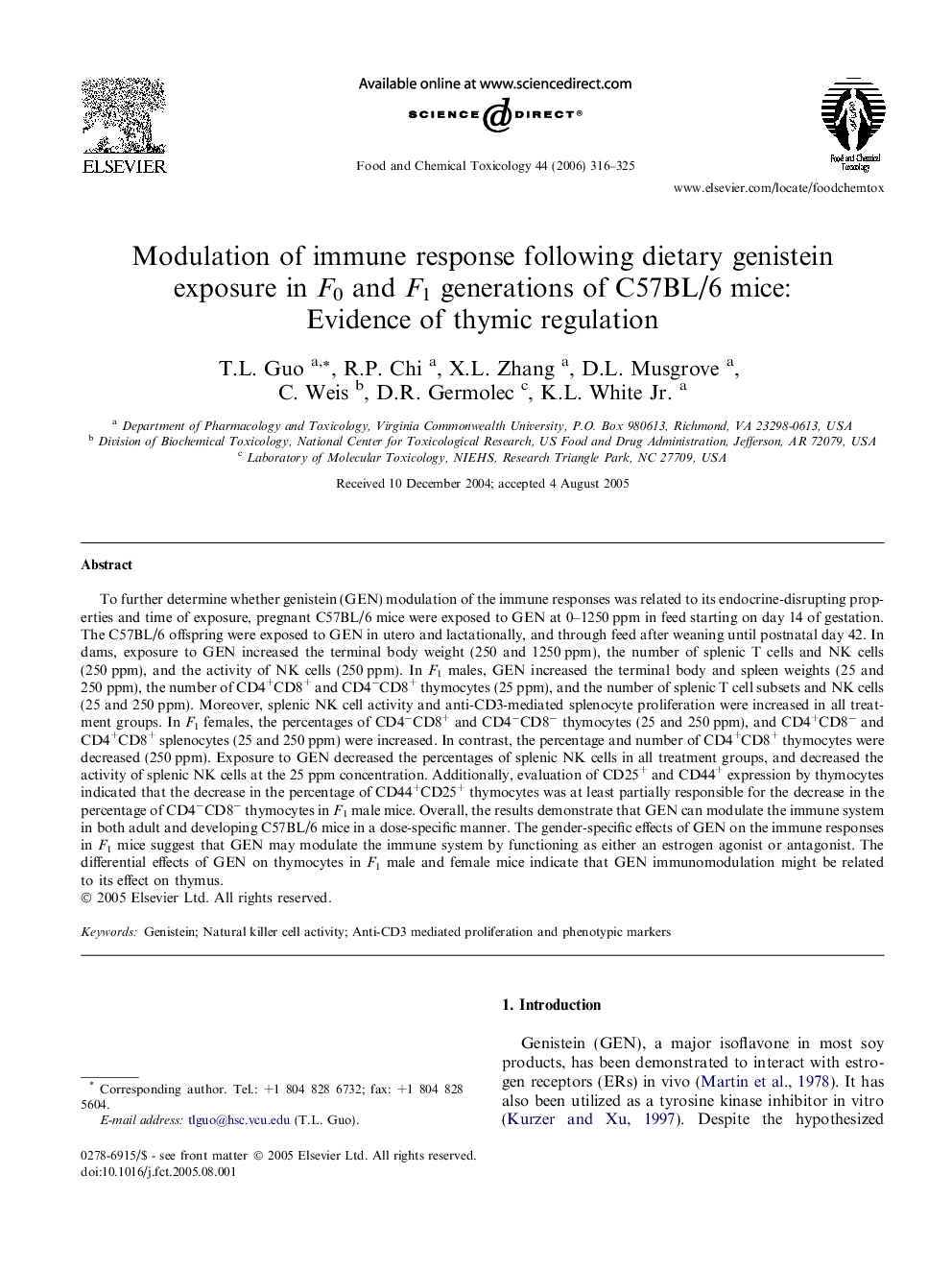| کد مقاله | کد نشریه | سال انتشار | مقاله انگلیسی | نسخه تمام متن |
|---|---|---|---|---|
| 2587265 | 1130921 | 2006 | 10 صفحه PDF | دانلود رایگان |

To further determine whether genistein (GEN) modulation of the immune responses was related to its endocrine-disrupting properties and time of exposure, pregnant C57BL/6 mice were exposed to GEN at 0–1250 ppm in feed starting on day 14 of gestation. The C57BL/6 offspring were exposed to GEN in utero and lactationally, and through feed after weaning until postnatal day 42. In dams, exposure to GEN increased the terminal body weight (250 and 1250 ppm), the number of splenic T cells and NK cells (250 ppm), and the activity of NK cells (250 ppm). In F1 males, GEN increased the terminal body and spleen weights (25 and 250 ppm), the number of CD4+CD8+ and CD4−CD8+ thymocytes (25 ppm), and the number of splenic T cell subsets and NK cells (25 and 250 ppm). Moreover, splenic NK cell activity and anti-CD3-mediated splenocyte proliferation were increased in all treatment groups. In F1 females, the percentages of CD4−CD8+ and CD4−CD8− thymocytes (25 and 250 ppm), and CD4+CD8− and CD4+CD8+ splenocytes (25 and 250 ppm) were increased. In contrast, the percentage and number of CD4+CD8+ thymocytes were decreased (250 ppm). Exposure to GEN decreased the percentages of splenic NK cells in all treatment groups, and decreased the activity of splenic NK cells at the 25 ppm concentration. Additionally, evaluation of CD25+ and CD44+ expression by thymocytes indicated that the decrease in the percentage of CD44+CD25+ thymocytes was at least partially responsible for the decrease in the percentage of CD4−CD8− thymocytes in F1 male mice. Overall, the results demonstrate that GEN can modulate the immune system in both adult and developing C57BL/6 mice in a dose-specific manner. The gender-specific effects of GEN on the immune responses in F1 mice suggest that GEN may modulate the immune system by functioning as either an estrogen agonist or antagonist. The differential effects of GEN on thymocytes in F1 male and female mice indicate that GEN immunomodulation might be related to its effect on thymus.
Journal: Food and Chemical Toxicology - Volume 44, Issue 3, March 2006, Pages 316–325